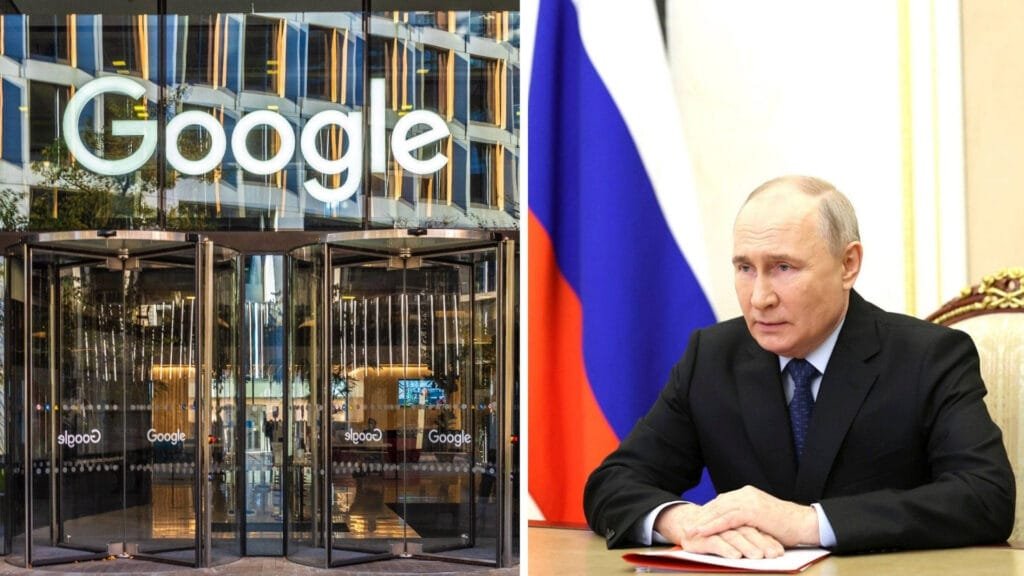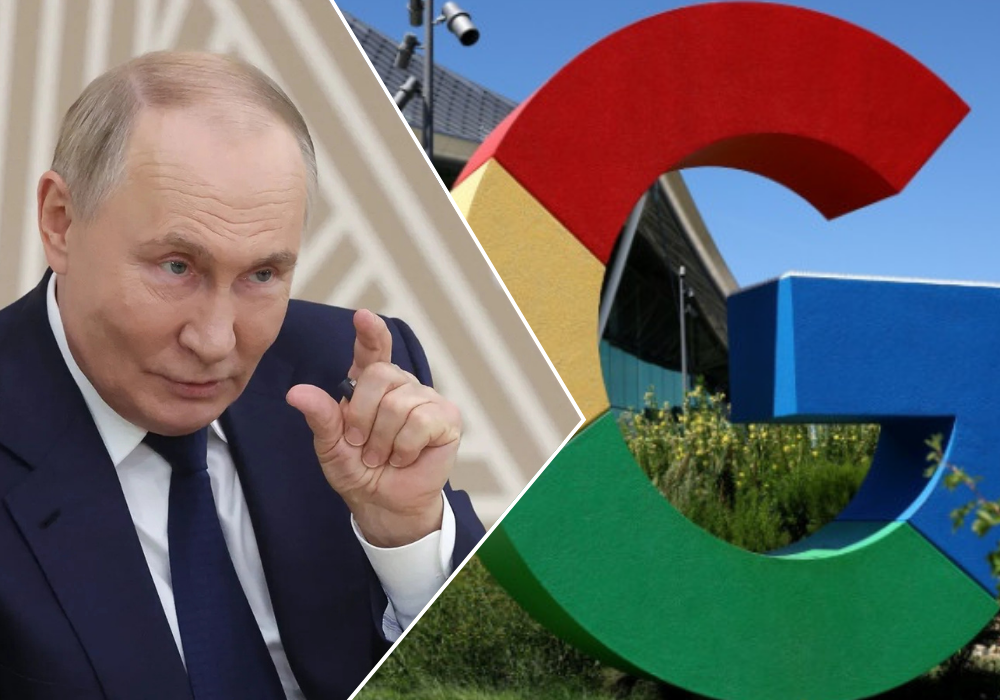The Highlights:
Russia recently handed out a titanic $2.5 decillion penalty to Google in connection to a case based on present and historical tensions the country has with some major western tech firms. The was a fine on Google tied to their refusal to reinstatement particular Russian media accounts. The penalty marked the largest private company fine issued in amount to about 100 trillion dollars, about the entire global GDP.

It originated from a four-year lawsuit that began in 2020, when YouTube belonging to Google blocked several accounts of pro-Kremlin, including the one named Tsargrad TV. Initially driven by compliance with the United States’ sanctions, it became a lawsuit against Google that would change the fate of both Google and the global landscape at large.
Key Events leading to the Fine
The tension started when YouTube actually implemented U.S. sanctions, which barred channels such as Tsargrad TV from broadcasting because of its affinity with Russian state interests. Once YouTube restricted the accounts-which included media entities associated with the Russian Ministry of Defense-Russia used its own legal means by forcing Google to reinstate the channels. Every day Google refused to comply, Russia imposed fines of 100,000 rubles, doubling weekly—a practice that eventually culminated in the surreal sum of $2.5 decillion.

The total fine, with its accelerating financial penalties, represents Russia’s hardline approach toward global tech companies, especially those of Western origin. While theoretically such fines are enforceable within Russian jurisdiction, collecting or enforcing this on a global scale becomes complicated, since Alphabet, Google’s parent company, has vast global assets but a minimal on-ground presence in Russia.
Russia’s Technological and Financial Power Play
At the same time, tense U.S.-Russia relations cast a shadow over the economy lost by Google with the verdict. Google itself toned down any financial damage in its earnings reports, but such political and financial impact of the verdict cannot be not considered. Alphabet has already been downsizing operations in Russia since 2022 as various government steps like asset confiscations and litigation limited the existing operations within Russia.
Legal analysts have argued that Russia may try to collect the fine from Google’s assets worldwide, using international courts. Although Alphabet’s financial muscle cushions the shock, the increasing regulatory onslaught across borders adds to the growing list of global problems for the company.
Google’s Response: Navigating an Uncharted Territory
Alphabet, in a response, has kept mum on specific strategies. The company has made its main statement by saying that it is resilient about material impacts from such problems. Google’s overall revenues and growth trajectory give an insulation against immediate consequences, though the long-term implications for this lawsuit could shape corporate strategies in politically sensitive markets.
It is still an underdeveloped field of the law full of uncertainties about political development on enforcing Russian judgments abroad. The company could at least attempt to seek longterm litigation in international courts like some Western corporations of yore.
A Global Message to Big Tech
This saga in the legal world gives a message to other big tech companies operating all around the world: the foreign entities may not tolerate alleged ideological alignments or selective regulation of platforms. Companies begin to rethink policies on how to moderate content, apply censorship, and be accountable to governments to avoid these standoffs in the near future. Many analysts believe that this case is actually a stern warning that sovereign entities could increasingly impose punitive measures, which might change the form of global tech operations once and for all.
Even if Russia’s escalatory strategy is unprecedented, the European Union, the U.S., and several other regions have already passed or are considering similar legislation that would check big tech. The European Union has actually just recently introduced regulations through its Digital Services Act that make such companies like Google more transparent about their practices in moderating content and holds them accountable as well. Cases like Google may soon force the pace of stiffer tech regulation around the globe.
Prospects Going Forward: Tech Companies Under Surveillance
The immediate decision in this case will thus shape future moves from Alphabet, and corporate policies around the world will take heed. Businesses operating in risky political jurisdictions may shift their risk calculations to incorporate regulatory as well as operational costs. Alphabet’s legal team will again be poised to dispute the enforceability of Russia’s fine, though the new approaches – like the latest diplomatic engagement – will offer more practical solutions.
The example in the case of Russia underlines a turn toward economic nationalism and self-reliance in general and in the digital sphere, in particular. As the digital conflicts escalate, countries like Russia will consider digital sovereignty actions, for example, using indigenous technology platforms and imposing information controls to minimize dependence on foreign companies.
For Latest News Updates Click Here
